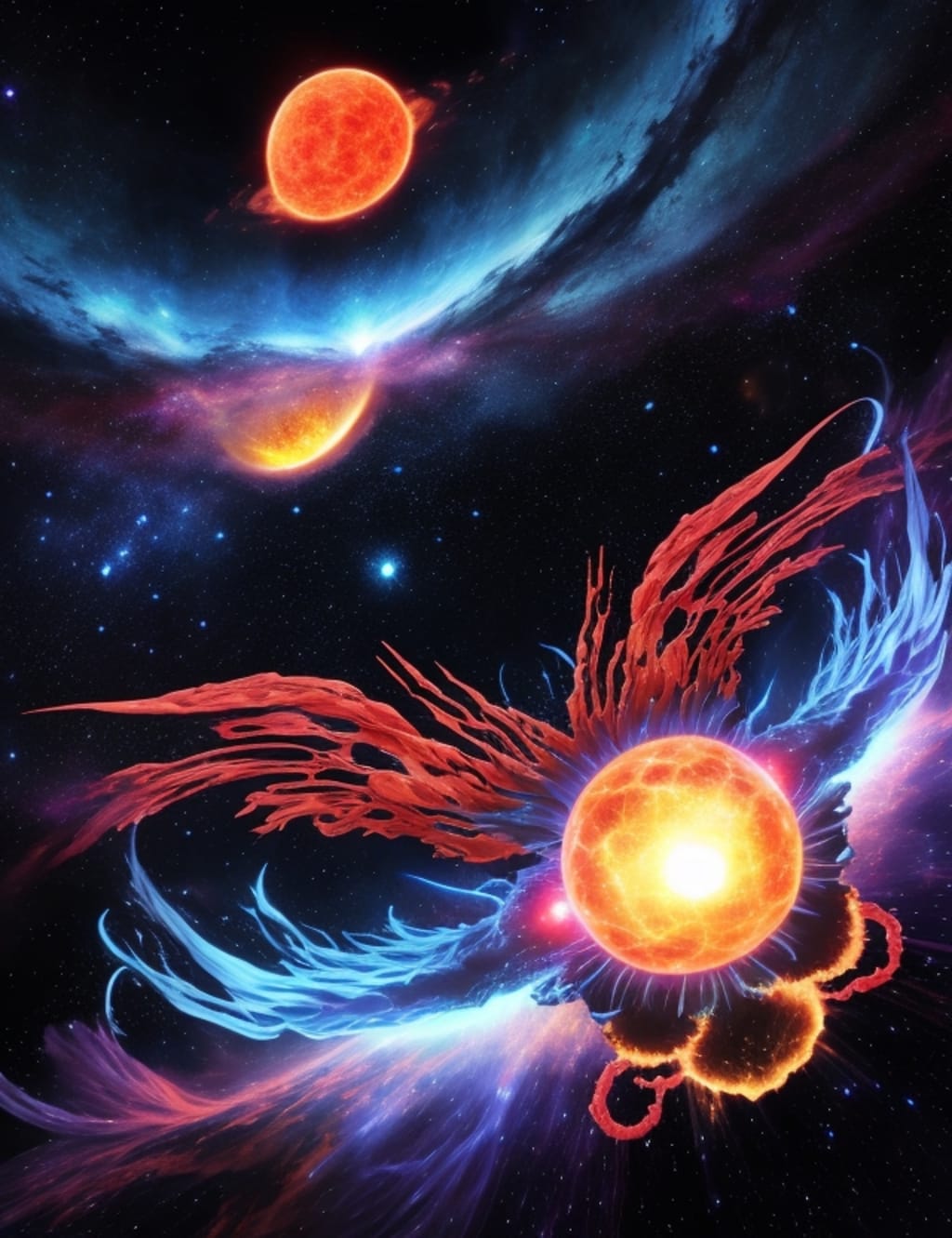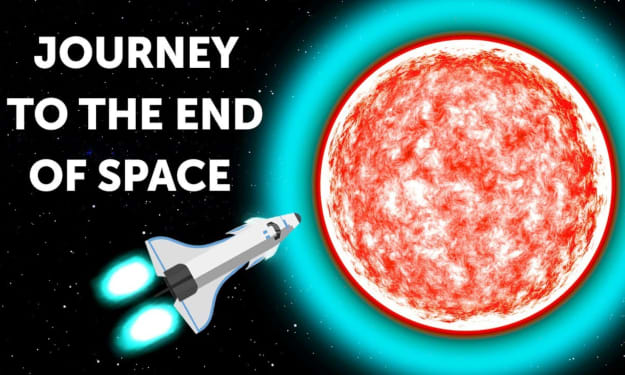Navigating the Possible Ends of the Universe
From Cosmic Freeze to Quantum Revival, Unraveling the Fate of the Cosmos

The universe, with its vastness and complexity, has been a subject of fascination and intrigue for humanity since time immemorial. While we have made remarkable strides in understanding its origins and evolution, the ultimate fate of the universe remains one of the most profound questions in cosmology. In this article, we will delve into the various theories and possibilities regarding the eventual fate of the universe, exploring the potential scenarios that await our cosmos.
I. The Big Bang and Cosmic Expansion
To comprehend the possible ends of the universe, we must first understand its origins. The prevailing cosmological model, the Big Bang theory, posits that the universe began as an infinitely hot and dense point, known as a singularity, approximately 13.8 billion years ago. In a fraction of a second, the universe expanded exponentially, setting the stage for the formation of galaxies, stars, and planets.
The critical aspect of the Big Bang theory concerning the universe's fate is the concept of cosmic expansion. Edwin Hubble's observations in the 1920s demonstrated that galaxies are moving away from one another, indicating that the universe is not static but is, in fact, expanding. This expansion is a fundamental factor in determining the possible destinies of the universe.
II. The Heat Death: A Cold and Lifeless End
One of the most widely discussed possibilities for the universe's end is the concept of the heat death, also known as the "Big Freeze" or "entropy death." This scenario is rooted in the second law of thermodynamics, which states that entropy, or disorder, in a closed system will tend to increase over time. Applied to the universe, this implies that as it continues to expand, the available energy for processes like star formation and life sustenance will become increasingly scarce.
In the context of the heat death, several scenarios are envisioned:
Stellar Evolution and Dark Era:
As the universe expands, galaxies will move further apart, making the formation of new stars increasingly rare. Existing stars will exhaust their nuclear fuel and eventually burn out. As this happens, the universe will enter a "dark era" where the cosmos is populated mainly by cold, dead remnants of stars and black holes. With no new sources of energy, the universe will grow darker and colder.
The Great Freeze:
Eventually, the universe will reach a state of maximum entropy, where all energy gradients are equalized. This means that temperature differences between objects will disappear, and the universe will approach absolute zero, with temperatures barely above the cosmic microwave background radiation. In such a state, life, as we know it, would be impossible, and the universe would be devoid of any significant activity.
III. The Big Crunch: A Cyclic Universe
Another possibility for the universe's end is the Big Crunch, which stands in contrast to the notion of cosmic expansion. In this scenario, the universe's expansion might reverse, leading to a contraction phase, ultimately culminating in a singularity akin to the Big Bang.
The key player in the Big Crunch theory is the density of matter in the universe. If the density exceeds a critical value, known as the critical density, the universe may not expand forever, but instead, gravitational forces could slow and ultimately reverse the expansion. In such a case, the universe would contract until it reaches a singularity, resetting the cycle.
However, recent observations suggest that the expansion of the universe is accelerating due to dark energy, a mysterious force with repulsive properties. If dark energy continues to dominate, the Big Crunch may be an unlikely outcome, and the universe would continue to expand indefinitely.
IV. The Big Rip: A Violent End
The Big Rip is a particularly dramatic scenario for the universe's end. In this theory, dark energy's influence becomes increasingly dominant over time, causing not only the expansion of the universe to persist but also to accelerate at an ever-increasing rate.
As dark energy's effects intensify, it would stretch and tear apart not only galaxies, stars, and planets but even subatomic particles and atoms. Ultimately, this cosmic acceleration would lead to the dissolution of all structures in the universe, culminating in the complete destruction of matter itself. The universe would end in a cataclysmic event, with no remnants of its former glory.
V. The Multiverse and Eternal Inflation
Another intriguing possibility for the fate of the universe is tied to the concept of the multiverse and eternal inflation. According to this theory, our universe is just one of countless "bubble" universes within a vast, inflating cosmic landscape. Each bubble universe may have its own set of physical laws and constants.
In this scenario, the universe could continue to expand and give rise to new bubble universes for eternity. Some of these universes might experience a Big Bang, while others could undergo different processes entirely. The fate of any individual universe within this multiverse becomes less significant, as the cosmic fabric remains eternally dynamic.
VI. Quantum Fluctuations and a New Beginning
An intriguing possibility for the universe's end involves quantum fluctuations and the potential for a new beginning. Quantum mechanics introduces a level of uncertainty into the universe, allowing for the spontaneous creation of particles and energy fluctuations.
In the distant future, as the universe approaches the heat death scenario, quantum fluctuations could become increasingly significant. It's conceivable that, through a quantum fluctuation, a new universe could spontaneously emerge, effectively resetting the cosmic clock and initiating another cycle of cosmic evolution.
The possible ends of the universe present a captivating and enigmatic subject for cosmologists and philosophers alike. While we have made significant strides in understanding the universe's origins and evolution, the ultimate fate of the cosmos remains a topic of ongoing research and speculation.
Whether it be the cold and lifeless scenario of the heat death, the cyclic nature of the Big Crunch, the cataclysmic end of the Big Rip, the eternal inflation of the multiverse, or the possibility of a new beginning through quantum fluctuations, the destiny of the universe continues to challenge our understanding of the cosmos.
As we delve deeper into the mysteries of the universe, each scenario offers its unique insights into the nature of time, space, and existence itself. In the end, the exploration of these possible ends not only sheds light on the fate of our universe but also deepens our appreciation for the profound and ever-evolving mysteries of the cosmos.
About the Creator
Dominik Szabó
Wannabe writer






Comments
There are no comments for this story
Be the first to respond and start the conversation.